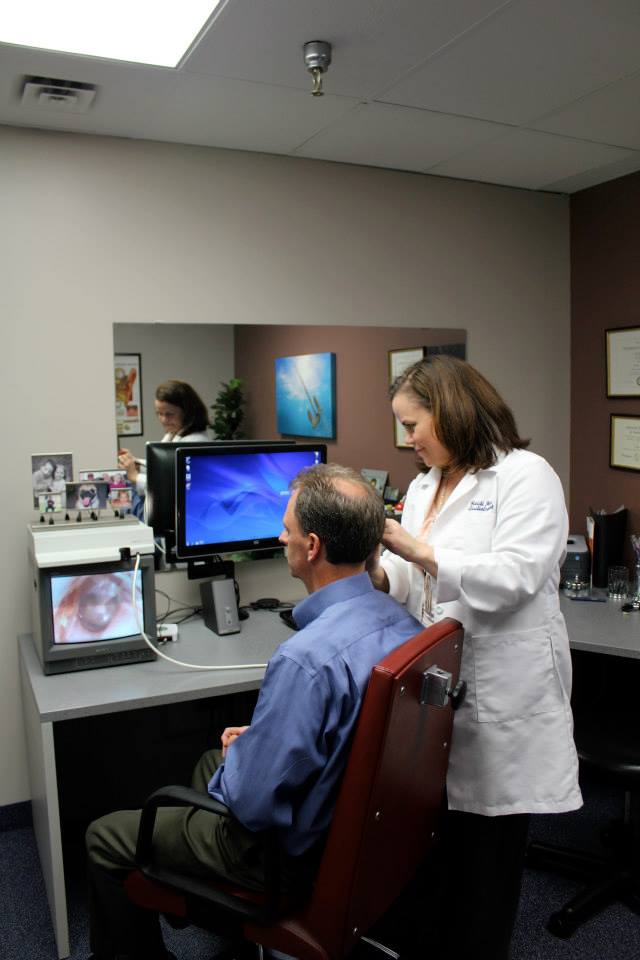Your Hearing Doctor
Hearing Health Minnesota offers a wide range of hearing health services for you and your loved ones.
Hearing Health Minnesota offers a wide range of hearing health services for you and your loved ones.
The branch of science which deals with hearing is called Audiology. And, as it turns out, a “hearing doctor” is technically a Doctor of Audiology. But not every audiologist is also a Doctor of Audiology.
An audiologist is a licensed healthcare professional who specializes in diagnosing and treating hearing, balance, and tinnitus disorders. Many of these professionals hold at least a master’s degree. They then go on to earn their Doctorate of Audiology (Au.D.), which makes them officially recognized as doctors by the American Speech-Language Hearing Association (ASHA).
In order to become an audiologist, you need at least a master’s degree in Audiology. This is required because hearing and balance disorders are extremely important issues that affect many people every day. However, if that isn’t enough for you, there’s always the option of getting your Ph.D in Audiology.

If so, a Doctor of Audiology can help. A Doctor of Audiology is an expert in the field of audiology and has completed advanced training in the diagnosis and management of ear-related disorders. They are trained to provide comprehensive care for people with hearing loss, tinnitus, dizziness, balance problems or other ear-related issues.
Hearing Health Clinic, MN has a team of professional and highly-competent audiologists to help patients with hearing loss enjoy a better quality of life. Read on to find out more about what a doctor of audiology does and how we can help you!
An ENT (ear, nose and throat) doctor is responsible for diagnosing any hearing loss in a medical way. This specialist can prescribe medical or surgical treatments for hearing aids. They’re also the only authorized professional who may diagnose this type of problem.
People may also see an otolaryngologist or “ear, nose and throat” doctor (ENT), depending on the cause and severity of their hearing loss. ENTs are physicians who typically treat profound hearing loss where cochlear implants or surgery are required. ENTs usually refer patients to an audiologist once it is established that hearing aids or counseling is needed.
When should you consult an ENT doctor for your hearing? In order to prevent any more damage than necessary, it is important to get them checked out. If your pain lasts for over 24 hours or you have persistent tinnitus, book an appointment at a clinic near you. In some cases of ear pain, external factors such as cotton balls or headphones can cause the problem.
An ENT (ear, nose and throat) doctor is responsible for diagnosing any hearing loss in a medical way. This specialist can prescribe medical or surgical treatments for hearing aids. They’re also the only authorized professional who may diagnose this type of problem. People may also see an otolaryngologist or “ear, nose and throat” doctor (ENT), depending on the cause and severity of their hearing loss. ENTs are physicians who typically treat profound hearing loss where cochlear implants or surgery are required. ENTs usually refer patients to an audiologist once it is established that hearing aids or counseling is needed.
When should you consult an ENT doctor for your hearing? In order to prevent any more damage than necessary, it is important to get them checked out. If your pain lasts for over 24 hours or you have persistent tinnitus, book an appointment at a clinic near you. In some cases of ear pain, external factors such as cotton balls or headphones can cause the problem. These types of hearing aids are available in different colors to easily match skin tone or hair color. Flashier designs are also available for a more personalized or accessorizing flair.
You may feel that your hearing loss is not a big deal and may be hesitant to get it checked out. But when you find yourself shunning conversation because you can’t hear, or struggling to understand what others are saying in a crowded room, that’s when it becomes time to book an appointment with the audiologist. Audiologists will be able to conduct tests and confirm your diagnosis of any hearing problems. We can recommend customized hearing solutions so that all sounds come through accurately again. Audiologists typically offer the following services:
Audiologists not only help you to hear but we make sure that you are hearing CLEARLY. We understand how sound travels to reach your ears, and we can make sure that hearing aids work for you and not just simply amplify the noise around you.